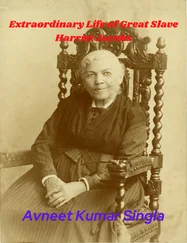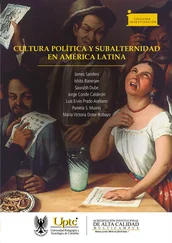“And you hire them to train Iraqi policemen?”
“On behalf of the United States government, right.” She stirred a packet of artificial sugar into her coffee cup, and then leaned forward to whisper into his ear: “We’re overseeing the interrogation of political prisoners from the Middle East.”
Harkályi coughed. It was uncontrollable. In his haste for a drink, he nearly spilled his water glass. “Please excuse me,” he said, taking a long drink. “I think it’s time that I got dressed. There will be a car to meet us at one o’clock. I will feel fortunate to have a personal translator with me today. We will go to Buda for the concert, and then have some photographs taken with the prime minister. Now, however, please excuse me.”
“I can’t wait. In the meantime, have you seen a post office by any chance? I told my boyfriend I’d mail some letters for him.”
“A boyfriend, Magda?”
“Yes, you’ll meet him soon, I hope.”
“I would like that very much. You should have brought him with you. Nothing is open today, of course. Perhaps you can find a mailbox.”
“Of course. I’ll do that, and be back before one. And then — a new opera! I’m so excited.”
“It is not so new for me, Magda.” He pushed the bowl of sugary goo away from his body and stood, with some effort. His knees no longer functioned as they once did. So much time had been stolen from him. “I will meet you downstairs. We will continue this conversation shortly. Seeing you, yes — it does almost feel as if I have come home. You are the last of the Harkályis, Magda.”
“It’s great to see you too. Just remember, you’ve been through this a million times before. Don’t be afraid.”
13.
Luck, a phenomenon that at age fourteen Lajos had already discerned as the afterthought of an indifferent God, one eclipsed from view in Bohemia, kept him and Tibor off those cattle cars bound for Poland and beyond the notice of the council of elders, whose unfortunate responsibility it became to condemn their fellow Jews to that passage across Mitteleuropa. While lethargy and apathy and incomprehension demagnetized the globe’s moral compass, bodies continued to burn in the distance, the smoke rising to obscure the light of two million stars, still twinkling bright yellow, though already dead.
In the spring, a film crew arrived from Berlin to shoot a documentary that would be shown to the world. Karel Ančerl was ordered to prepare a special concert, with only a few days’ notice, to take place on the main grandstand in the town center. It would include the Study for Strings, by Pavel Haas, and the children’s opera Brundibár, by Hans Krása, both residents of Terezín and both major influences on Harkályi’s earliest compositions.
Lajos copied the music with the promise that he would be granted the honor of performing with the second violins. The orchestra practiced around the clock, confident that their very lives depended upon a perfect performance. Haas and Krása attended every rehearsal to assist with certain questions of interpretation that arose, ecstatic that their music would gain a worldwide audience. Lajos’s hands ached from the constant scribbling of notes, yet as he was frequently reminded, his suffering did not match that of his brother, whose tireless physical servitude to the kapo made him just as invaluable. Lajos’s own hard work and dedication, rare for a musician of any age, endeared him to Ančerl.
In preparation for the film, and apart from the small circle of musicians otherwise occupied, every able-bodied woman and man — which is to say every woman and man, as those who were not of able body did not remain for long in Terezín — dedicated their labors to the beautification of the town. They added fresh coats of paint to the buildings and planted vast flower and vegetable gardens, though few among them would live to see them bloom again.
For days, the filmmakers shot images of children playing soccer, of families sitting around large, food-laden tables, of citizens in line to deposit fake money at the town’s newly built bank. The world would see the glorious gift that the kaiser had given to the Jews — their own Edenic village, far from the devastation of the war. The concert would be equally farcical, with a row of plotted plants placed in an orderly line along the front of the stage to hide from the camera’s view the shabby shoes that failed to match the dark, hastily tailored suits, each with a bright and prominent Star of David emblazoned on the chest.
On the morning of the performance, at the instruction of Ančerl, the concertmaster approached Lajos while he practiced his scales, a chore he relished for its distraction. The maestro had decided that he would not allow Lajos to perform in the concert. His cinematic debut would have to wait for another day, and for different circumstances. When asked why, he was told that he did not appear sufficiently Jewish to make the proper impression for the camera and, in addition, that his playing was simply not up to the standards of the adults in the string orchestra. If he wanted to become a concert violinist, he would have to dedicate himself to practicing more, without the distraction of copying music or notating the melodies that even then had started to ferment in his imagination. The disappointment stung; anger surged through his sunken frame, but he was powerless. The memory of that rage embarrassed Harkályi for the rest of his life. He had said some things out of youthful indiscretion that he will always regret.
He refused to attend the concert, and instead hid in the barracks. Tibor would later describe the event in detail, movement by movement, and in particular the immediate aftermath: once the camera stopped rolling, Ančerl with a wave raised all of the musicians to their feet and asked them to place their instruments on their chairs. He led the procession, baton still in hand, as they lined off the riser in single file, laughing at the joy of a successful performance. Men shook hands, grabbed proudly at their fashionable lapels. Smiling the entire way, they followed Ančerl’s slow, funereal pace straight into the cars of the transport train, which already contained the families of every participant of the concert. Word quickly spread that they were being freed in recognition of their gift to the Reich, and they cheered and shouted to each other, despite the crowded conditions. At Auschwitz, so Harkályi learned many years later, only Ančerl among the hundreds of them would survive the day.
The maestro had rehearsed and conducted the concert, under the gaze of the cameras and of the entire world, with the full understanding that immediately afterwards he would lead the men in his charge to their deaths. In dismissing Lajos from the performance, Ančerl knowingly and deliberately saved his young life.
Twenty years later, Ančerl toured the United States and Harkályi, by then a professor of music in Philadelphia, though not yet internationally recognized, attempted to arrange a reunion. His letter to Ančerl was returned unopened by the management of the Czech Philharmonic, and he never spoke with the maestro again, not even after he emigrated to Canada.
“Goddamn Karel Ančerl,” he had said back then, in Terezín. It was the first instance in his life that his prayers would be answered.
Lajos was left behind to rot, so he believed, while all of the other musicians and composers gained their freedom in Western Europe and elsewhere. He grew embittered, but also productive. With the sudden shortage of competent performers, the homesick guards approached him with commissions. They grew tired of hearing the same few marches, so they sent to Leipzig and Berlin and even Paris for new music — tangos and csárdás, arias from the latest operettas — which Lajos had to transcribe for a rotating cast of musicians and whatever instruments were on hand. The living could fill out the chords of the dead. He assigned all of the parts to all or to almost all of the musicians simultaneously, with only slight variations in form or timbre, so it didn’t matter if he only had three violins or if his oboist had been shot, or even if there were no cello strings to be found within fifty miles. His inner ear grew accustomed to awkward variations in pitch, which he learned to incorporate into the music he composed based upon the Volkslieder the weeping officers sang drunkenly to him. The rapid turnover of musicians made it difficult to orchestrate precise melodies, so Harkályi taught himself a unique compositional style, a style that eventually gained him a vast, international following and brought him back here to Budapest after all of these years.
Читать дальше












